Civilization V is very much the same, yet totally different
Our first look reveals five tiny tweaks with game-changing consequences
Civilization is one of gaming's longest-running franchises by far, with the first entry debuting all the way back in 1991. To give our younger readers some perspective, that's a full year before the release of Wolfenstein 3D and the popularization of the first person shooter. Since then, Civilization has given us three sequels, four spin-offs, six expansion packs and eight compilations.
So, for this fifth edition of the turn-based empire-building strategy series, what's left to improve? How do you tweak such a time-proven formula without messing it up? Why should players buy a new game instead of just sticking with the last game?
During our first look at Civilization V yesterday, the developers pointed outfive changes that, while seemingly small at first, could make the franchise feel brand new all over again.
Napoleon vs Gandhi vs Washington

Leaders are a huge part of Civilization's charm. What other game gives you the chance to talk to George Washington, Queen Elizabeth I, Julius Caesar and Montezuma in a single session? In the past, though, these historical figures have served only as era-appropriate, country-specific eye candy. Playing with or against a computer-controlled Gandhi, for example, didn't feel any different from playing with or against a computer-controlled Napoleon Bonaparte.
For V, these leaders will have distinct AI personalities – unique styles and strategies that match what you might expect from the real inspirations. And to add an extra layer of immersion, the developers are having each leader speak in his or her native language. They've even contracted an agency that specializes in resurrecting so-called "dead" languages – tongues that haven't been spoken in centuries – to bring life to folks like Montezuma.
Riskand reward
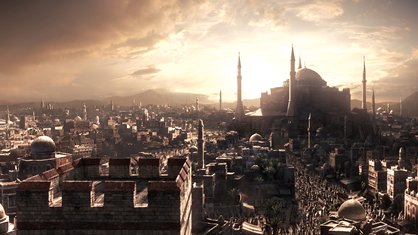
Also new to Civilization this time are computer-operated "city states" that exist on the map from the moment you start the game and act as magnets for war, alliance and trade between competing civilizations. These metropolises, with names like Budapest or Washington, can be of great benefit to the player. You can earn their friendship by sending gold or helping out with extra soldiers, but that friendship could come back to haunt you later. Napoleon might leave your armies alone, but attack a friendly city state, forcing you into an unexpected – and unwanted – conflict.
Another addition are research agreements, which enable you to pool resources with other leaders to make shared discoveries. Again, though, there are risks as well as rewards. Teaming up with Otto von Bismarck may get you better science in better time… but if you're pulled into war with him, that pact will be broken and you'll lose all the money you poured into the project.
Sign up to the GamesRadar+ Newsletter
Weekly digests, tales from the communities you love, and more
An even playing field
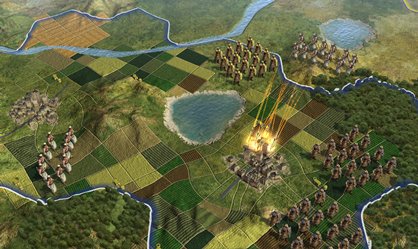
In the past, Civilization players tended to pile fighting units on top of each other so that they could amass large armies at a single, if small, opportunistic location. A smart strategy, but not very realistic. The fifth entry puts an end to that cheap trick, limiting one unit per one tile. Now you'll have to think more carefully about where you want to deploy your troops, how thin you want to spread them and which parts of the map will be most heavily contested. Fortunately, the game is also introducing ranged units with spears and arrows to help expand your strategic options.
Goodbye square, hello hexagon
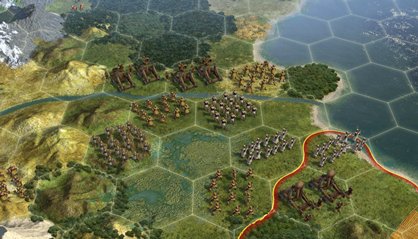
Like a board game, Civilization's map is divided into tiles on which you move units and expand territory. In the past, these tiles have been four-sided squares, but now, they will be six-sided hexagons. So what, you say? Just look:
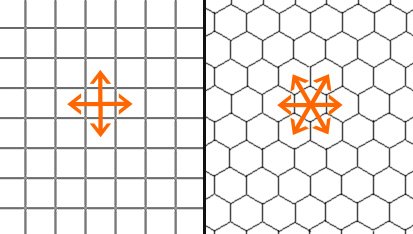
The extra sides of a hexagon open up endless, dynamic movement possibilities. You could actually always move diagonally in Civilization, but now that fact will be much more apparent and, thus, will lead players to much more sophisticated strategies. Plus, imagine those tiles spread over realistic terrain – farms, rivers, mountains, forests – and think about which feels organic.
Embracing experimentation
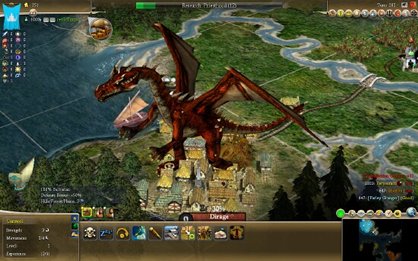
Fans have always hacked the Civilization model, transforming the game into completely new experiences. You can play Civilization during the Ice Age, or the Crusades, or the American Revolution. You can increase the game's realism, or abandon actual history for that of a dark fantasy world based on Dungeons & Dragons.
And Civilization's developers have always encouraged this expansion by packaging the necessary modding tools with the games. During our demo, they proudly talked aboutFall From Heaven, the most popular fan mod that has been downloaded hundreds of thousands of times.
They don't just want us to know about it, however… they want everyone to know, and they want to make sure everyone gets a chance to play. Therefore, Civilization V will ship with some form of community mode that not only highlights the fan's best work, but seriously extends the game's replay value.
Mar 10, 2010



